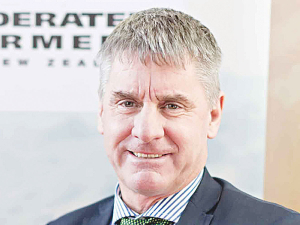A number of Northland dairy farmers are thinking of leaving the industry due to the cost of environmental farm plans that they will need to have in place under Essential Freshwater rules.
In one case, a farmer was told it would cost $260,000 to bring his effluent system up to the standard required, Northland Federated Farmers' president Colin Hannah told Auckland Federated Farmers Conference.
"They don't want to get into that sort of debt," he said.
Hannah added that farmers had no other supply option but Fonterra and some just under aged 60 were being refused loans by their banks, so their only option was to sell.
Paul Melville, the federation's new general manager of policy and advocacy, said the plans should be a voluntary tool for councils to use, rather than all property owners with more than 20 hectares needing one.
His guesstimate of the cost of the plans was $6,000 per farmer and there was a shortage of people qualified to certify these once they were written. A number of farmers at the meeting objected to having the plans imposed on them, saying they didn't need to be told what to do.
Meat and Wool chairperson, Edgar Henson, said the Ministry for Primary Industries (MPI) and Ministry for the Environment (MfE) should be told to produce the plans "or otherwise bugger off".
"If they can't produce a template, they don't know what they're doing."
Feds' national freshwater spokesman, Colin Hurst, said Canterbury farmers had been dealing with the plans since commissioners were put in place on Environment Canterbury (ECan).
"It;s nothing new to us."
But the $6,000 per farmer cost multiplied by around 35,000 farmers showed the extent of "the money being sucked out of the rural economy".
Farmers were also hot under the collar about the state of rural roads with a remit unanimously passed to go to national conference that Feds work with Waka Kotahi to ensure water tables and culverts were maintained. Dairy chairperson, Rosemarie Costar, said Waka Kotahi was being more prescriptive as to where councils could spend their funding, and this has caused more damage from recent flooding than previously.
President Alan Cole said funding criteria had been changed wth safety being prioritised, with moeny being diverted into building cycleways rather than road maintenance.
"There are potholes even on state highways."
In a roundup of policy issues Melville said a series of meetings were planned in June on Affordable Water Reforms, which had an even stronger focus on environmental protection than Three Waters which they replaced.
There were also deep concerns expressed about changes to the Resource Management Act (RMA) currently going through Parliament and worries that under present Emissions Trading Scheme (ETS) settings there would be a carbon glut by 2030, which could mean the carbon credit price could crash.
There was a need for a growth story around dairy, beef and lamb production which, through using new technologies such as genetically modified ryegrass, could reduce their environmental footprint.











